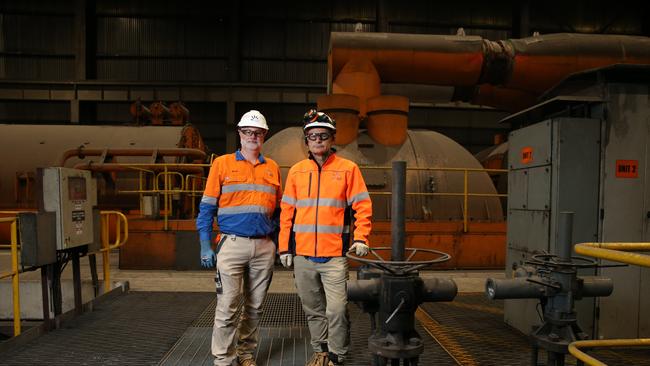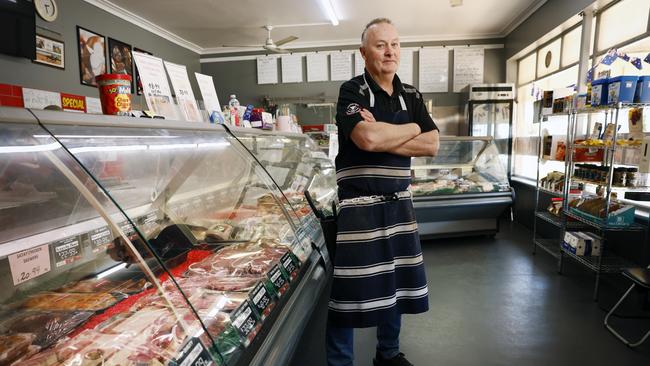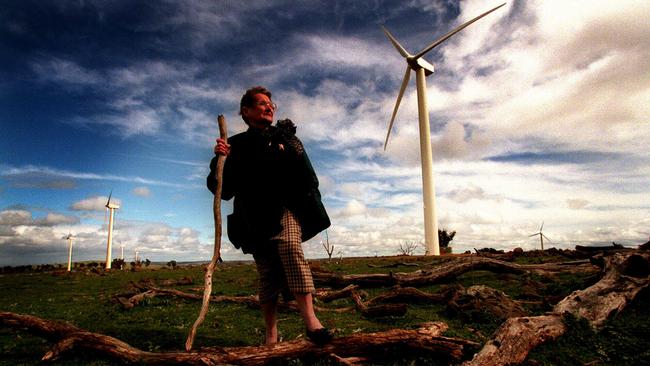30 degrees and we can’t turn on the aircon? Albo and Bowen have given Sydney a long hot summer
The blackouts facing New South Wales this week are one of the first net zero chickens coming home to roost – and there will be many more, writes Saxon Davidson.
Opinion
Don't miss out on the headlines from Opinion. Followed categories will be added to My News.
Just weeks after a fortnight of blackouts plagued Broken Hill, New South Wales is on alert for blackouts by the Australian Energy Market Operator (AEMO) because of “ongoing heatwave conditions”.
While it was easy for inner-city elites and the political class to ignore the plight of Broken Hill as a case of “out of sight, out of mind”, widespread blackouts will be conclusive evidence for the rest of the community of the failure of the net zero energy policies they demand.
Mainstream Australians have every right to ask the question, how have we as a nation, especially one with abundant natural resources, allowed the lights to go out? And for that matter, when did a few days in spring, in the mid to high 30s, qualify as “ongoing heatwave conditions”?
This failure of net zero energy policy has not come without warning.

The Institute of Public Affairs has been warning for years that the current energy policy framework which the federal government, and all the state governments, function under does not prioritise energy reliability and affordability; rather it is solely focused on lowering emissions.
This has resulted in the decommissioning of baseload power stations, such as Liddell, shifting the fundamentals of our energy grid to unreliable and intermittent renewable energy sources, specifically wind and solar.

With fewer baseload sources of power for the grid to rely on, such as coal and gas, it increases the likelihood of energy reliability gaps in times of high demand, such as New South Wales faces today.
Yet, despite the warnings, governments have doubled down on the renewable energy push.
Renewable energy zealots may like to preach that the failure of the grid is because of the breakdown of the old coal power stations, but this is pure misdirection. If there were more reliable and affordable sources of baseload power, it would be far less likely that the energy grid would fall over at the sight of a warm day or an afternoon thunderstorm.
The blame for the lights going out in New South Wales falls directly at the feet of the Prime Minister and Chris Bowen. Their uncompromising support for renewable energy and net zero, in an effort to curry political favour, as well as their fervent opposition to all baseload sources of power, be it coal or nuclear, has made this situation inevitable.

But political pressure to achieve outcomes is not the only reason this unacceptable crisis has been allowed to happen.
Responsibility also lies with the Australian Energy Market Operator (AEMO). AEMO is responsible for maintaining secure electricity and gas systems, managing electricity and gas markets, and leading the design of Australia’s future energy system.
In recent years AEMO Chief Executive Officer, Daniel Westerman, has seemingly been far more concerned with shutting down reliable baseload power stations, while demanding even more unreliable renewable projects, which simply are not up to the job, all the while proselytising the virtues of net zero.
It is remarkable that AEMO has been warning for years about potential gas shortages and blackouts across the eastern states, but in the next breath suggesting that the only path forward is to accelerate the closures of baseload power stations. This week makes clear that far too much effort has gone into designing a net zero energy grid for activists, and far too little effort has gone into AEMO’s responsibility to maintain a secure energy system.
The failure of AEMO’s management to act independently of the ideological leanings of government undermines the work of the system operators on the ground, who are working to keep the lights on and industry running with one hand tied behind their back.
The blackouts facing New South Wales this week are one of the first net zero chickens coming home to roost – and there will be many more.
Let this week’s unacceptable situation be the catalyst for the nation to have a proper and honest debate about affordable and reliable energy generation, which includes a discussion about nuclear power and the cost of net zero to Australian families and small businesses.
Otherwise, we will all have to worry each time a 30-degree day is forecast – for the rest of our lives.
Saxon Davidson is a Research Fellow at the Institute of Public Affairs




